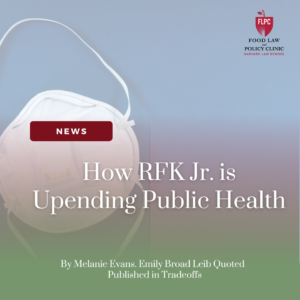This article was written boriginally published by Black Voice News on May 22, 2020.
Even as Black and Brown communities continue to be disproportionately impacted by COVID-19, officials appear to be working at cross purposes to a national movement to ensure members of minority communities have access to testing by sharing the names and address of those who test positive with first responders—including sheriffs and police.
In the push to accelerate testing, many in the public believe information about their test and its outcome is protected under HIPAA laws—the Health Insurance Portability and Accountability Act of 1996—which states personal, private health information would remain confidential.
It is very probable the more than 11 million people who have tested positive for the virus to date, tested largely with the misunderstanding their test results were confidential.
Yet, we now learn approximately 33 states are sharing address information of those who tested positive with first responders. In addition, according to an Associated Press report, among the various states sharing the information, at least ten of those states also provide the name of the person who tested positive.
Although officials with the U.S. Department of Health and Human Services claim sharing the information does not violate medical privacy laws and police officials have claimed the information will be destroyed over time, there is growing concern by civil liberty activists, civil rights groups and others this is just another way for police to profile people of color.
There are also concerns such information could be used by police to “red-line” communities where people are sick and as a result, police and other first responders may seek to avoid addresses where individuals have tested positive out of fear of contracting the virus themselves.
The strained, historic relationship between communities of color and the police make the policy of sharing medical information a red flag to those who have borne witness to police profiling and abuse. This sharing of positive COVID-19 test information is ripe for police exploitation. For those who might argue this would never happen need only ask members of the gay community who suffered during the AIDS pandemic.
The revelation COVID-19 test results are not protected by HIPAA, and positive results are being shared with police in so many states across the country, is more than concerning for civil liberty and civil rights activists. However, Roger Severinoto, Director of the Office for Civil Rights of the U.S. Dept. of Health and Human Services told NPR in late April, HIPAA sets a national standard, but it is the floor, not the ceiling. “Where state laws require certain disclosures, HIPAA moves to the side,” he says. And HIPAA itself allows for the disclosure of medical information under certain conditions. “The safety of first responders and the people they interact with can be taken into account in a limited fashion, just for that purpose, to make sure people’s safety is protected.”
But, Black and Brown people who represent a significant percent of those on the frontlines performing essential jobs during the pandemic are more at risk; and as a result, are among those with the greatest need for testing; yet, this policy could deter them from seeking a test and in the process risk further spread of COVID-19. It may also discourage other Black and Brown people from being tested.
The Faculty Director of the Center for Health Law and Policy Innovation at Harvard Law School Robert Greenwald expressed similar sentiment in a letter sent to the Governor of Massachusetts in late March he expressed the following concern about revealing the address of those who test positive to first responders. “I am writing to point out one emergency order that was recently issued that is misguided and will, in fact, undermine both individual and public health. Requiring local boards of health to disclose the addresses of people who have tested positive for COVID-19 to officials administering the response to emergency calls and, in turn, to first responders, is not sound public health policy.”
Greenwald further expressed his belief first responders should treat every call as if the person potentially already has COVID-19. This makes the need for address information of those who test positive unnecessary. This is an appropriate response to those who argue knowing who has tested positive is necessary to protect first responders.
Greenwald argued, “There will be no effective “list” as the overwhelming majority of people who are infected with COVID-19 do not know it [because they are asymptomatic]. And sadly, over time, more than half the addresses in our state will likely end up on the list.”
In discussing the policy with National Public Radio, former director for the Centers for Disease Control and Prevention (CDC) Tom Frieden appeared to agree with Greenwald when he declared, “There could be a misguided sense of security from that,” he says. “You wouldn’t want a policeman or fireman to think, ‘Well, since that address isn’t on the list, it’s safe.’ With COVID spreading, we have to assume it could be anywhere.”
The IE Voice/Black Voice News questioned the California Department of Public Health regarding whether the state was sharing personal and specific COVID-19 test information with first responders including the police and/or whether it was aware of any counties sharing such information.
The department replied, “The California Department of Public Health is unaware of any sharing of patient identifying information with either first responders or law enforcement.”
Similar inquiries were made of the public health departments in both Riverside and San Bernardino Counties.
Riverside County Department of Public Health spokesperson Jose Arballo acknowledged, “We provide information to first responders (at least name and address) of those who have tested positive. The information is entered into the system used by first responders. If there is a call at a coronavirus confirmed address, the system flags the call and lets responders know.”
Arballo continued, “The information is allowed to be forwarded because of a change in law due to the coronavirus epidemic that allows for the confidential information to be shared.”
San Bernardino County has yet to respond to the inquiry.


